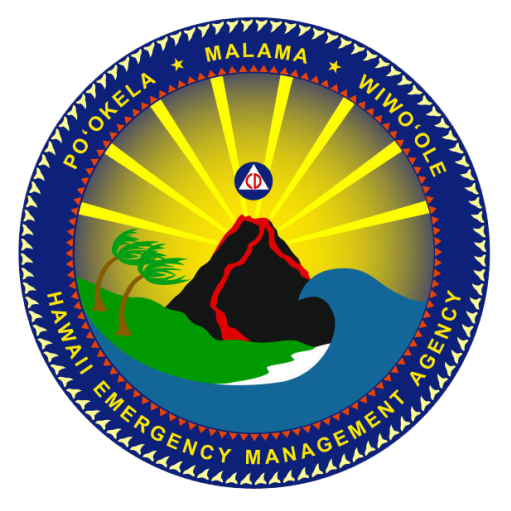NEWS RELEASE: HI-EMA Reminds Residents to Prepare for Hurricane Season
FOR IMMEDIATE RELEASE
June 4, 2020
HONOLULU — While the National Weather Service is predicting an average storm potential for this year’s hurricane season—2-6 tropical cyclones, the uncertainty posed by the COVID-19 pandemic stresses the critical need for preparedness to avoid long lines at gas stations, grocery stores, and ATMs across Hawai’i.
“Hurricane season brings the very real threat of high winds, rain, storm surge, potential flooding, and landslides to the Hawaiian Islands. And especially with this unprecedented incident caused by COVID-19, there could be significant impacts even if a hurricane doesn’t hit us directly. I urge Hawai’i’s residents and businesses to prepare now. Make an emergency plan, talk about it with your families and employees, and gather supplies to ensure that our communities are resilient,” said Governor David Ige.
“From an emergency management perspective, these look like good odds,” said Luke P. Meyers, Administrator of HI-EMA. “The National Weather Service predicts between 2-6 tropical cyclones this season, but all it takes is just one storm to bring disaster to our islands.”
The Hawai’i Emergency Management Agency (HI-EMA) would like to take this opportunity to remind residents to prepare an “emergency kit” of a minimum of 14 days of food, water, hand sanitizer, face masks, and other supplies.
“Due to the elevated risks posed by the COVID-19 pandemic, this year, we are adding hand sanitizers and face masks to our recommended 14-day emergency kit,” said Meyers. “Because of Hawai’i’s isolated location in the Pacific, everyone who plans ahead and prepares an emergency kit helps not only themselves, but they also help their entire community deal with a disaster.”
Hurricane season runs from June 1 to November 30. The summer of 2018 brought a storm named Lane, which, had it maintained its course towards the islands, would have resulted in devastating damage to residents and their property. It most likely would also have resulted in catastrophic destruction to our economy due to the isolated location of Hawai’i. With the shutdown of ports, goods, and services would have been weeks or even months away.
HI-EMA suggests keeping your family’s supplies fresh for the entire season by rotating, consuming, and replenishing them over time.
HI-EMA also recommends that residents and visitors take the following actions in preparation for a possible hurricane or tropical cyclone.
• Know if your home is in an inundation zone, flood zone, or susceptible to high winds and other hazards.
• Sign up for local notification alerts (i.e., HNL.INFO).
• Talk with family members and develop a clear understanding of what you will do if a hurricane or tropical storm threatens. Prepare an action plan that includes details such as whether your family intends to shelter in place or go to a friend or relative’s house.
• Build an emergency kit containing up to 14 days of food, water, medicine and other personal hygiene including masks and hand sanitizers.
• Assess and consider investing in flood insurance.
• Consider retrofitting your house or investing in hurricane clips.
# # #
RESOURCES:
https://www.ready.hawaii.gov
Twitter: @Hawaii_EMA
Facebook: @HawaiiEMA
Instagram: Hawaii_EMA
YouTube: Hawaii Emergency Management Agency
Linkedin: Hawaii Emergency Management Agency
